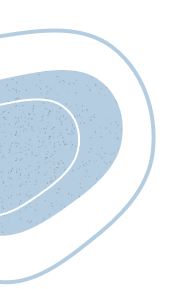Mortgages & Financing
Refinancing
Mortgage Renewals
Refinancing vs. Renewing: What’s best for your situation?
When your mortgage term is done, you need to make a decision: renewing or refinancing? It's hard to make that decision without all the information, so here's some helpful information about each option, and why it might be right for you.
![]() Niamh GyulayContent Marketing Specalist
Niamh GyulayContent Marketing Specalist
3 min read

Many first-time homebuyers hear about many concepts in the homebuying process that are foreign to them at first; amortization, fixed rates, variable rates, etc. Two concepts that homeowners don’t encounter until later are refinancing and renewal. What do these mean?
Renewing your mortgage
Renewing your mortgage means continuing your mortgage with your current lender at the end of your term. This usually means you have a new rate and term with the same lender, but the total loan doesn’t change.
Pros of renewing your mortgage:
Quick & easy: no stressful shopping around, and no need to reapply (unless you change terms significantly).
No penalties or fees: generally speaking, renewals at term-end have no prepayment penalties.
Loyalty perks: Some mortgage lenders offer rate discounts or incentives for existing customers.
Consistency: Continuing your relationship with your lender, making administration for your mortgage easy and straightforward.
Cons of renewing your mortgage:
Not the best rate: You may miss out on lower rates from another lender if you don’t shop around.
Negotiating leverage: Mortgage lenders assume you’ll stay, so they might not offer their most competitive rate to you.
Limited flexibility: Renewal doesn’t usually allow for major changes like taking out equity or consolidating debt.
Refinancing your mortgage
Refinancing means signing a new mortgage, either with your current lender or a different one. You might refinance mid-term (which could cost you some money), or at renewal time.
Pros of refinancing your mortgage:
Potential lower interest rates: You can see what other interest rates other lenders have, and that could save you a lot of money in the long run.
Access to home equity: You can borrow additional funds for home improvements or debt consolidation.
Change loan terms: You can adjust many aspects of your mortgage with refinancing; amortization length, switch from variable to fixed rates, or modify payment frequency.
Debt consolidation: If you have high-interest debts, rolling them into your mortgage can reduce overall costs, giving you one larger payment with low interest, rather than a bunch of small payments with high interest rates.
Cons of refinancing:
Possible penalties: If you refinance before your term ends, you’ll likely pay prepayment penalties.
Closing costs and fees: Appraisal, legal, and administrative fees can all add up (often to over $2000).
Re-qualification: You will need to re-qualify under current lending and stress test requirements.
Longer amortization can cost more in the long run: Extending your loan term can reduce payments but increase lifetime interest.
So which one is right for me?
Renewing your mortgage makes the most sense when you’re happy with your lender’s service and rate, don’t need extra funds or changes to your mortgage, and you want a simple, no-cost process. Refinancing your mortgage makes the most sense when market rates have dropped significantly since you started your last mortgage term, you want to access equity or consolidate debt, or if you’re planning on making major financial steps (like renovations or investments). It’s all what works best for you, your family, and your home.
Now that you are equipped with the knowledge to know the pros and cons of both renewing or refinancing your mortgage, you now can shop around for the best rates, and a lender that actually offers refinancing options. Go into mortgage shopping knowing what your long-term financial goals are.










